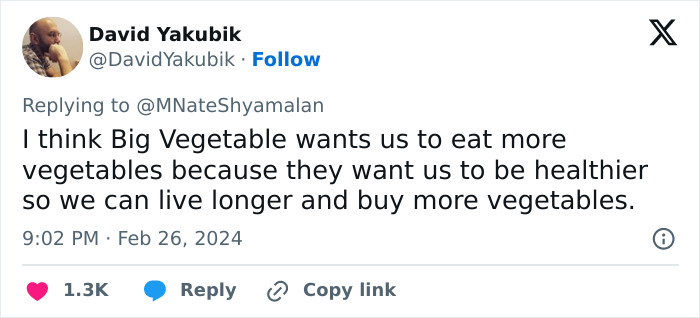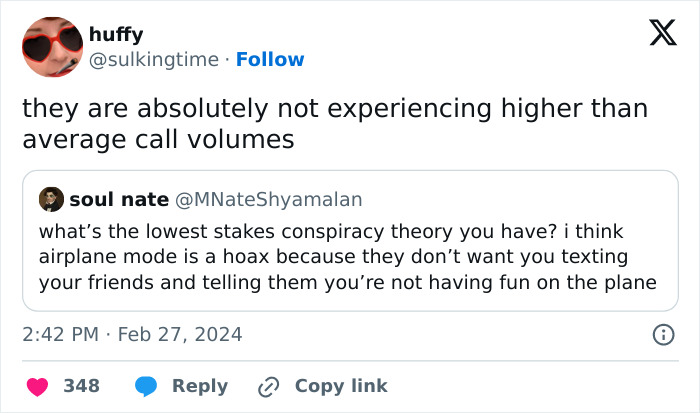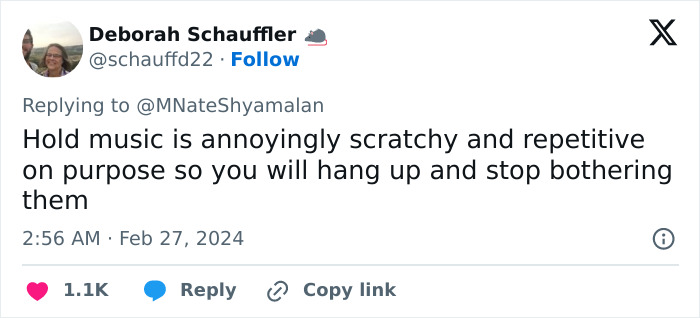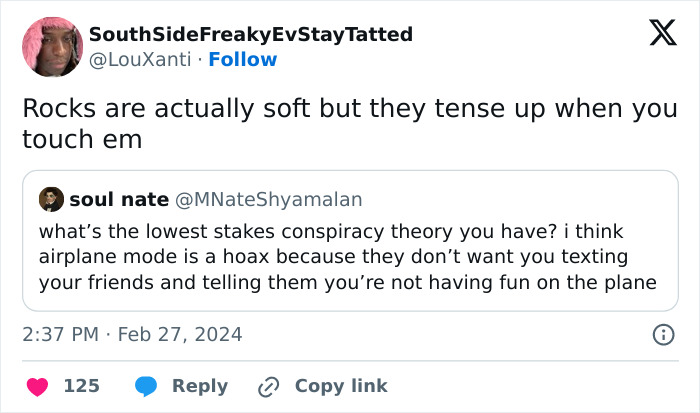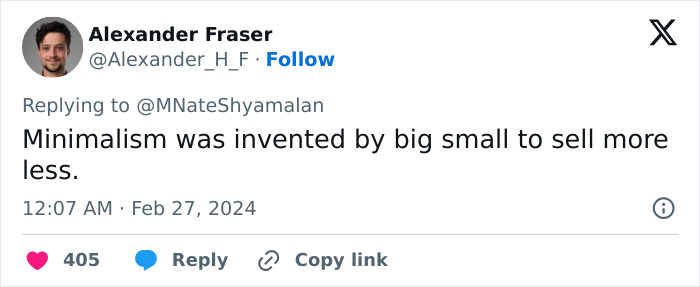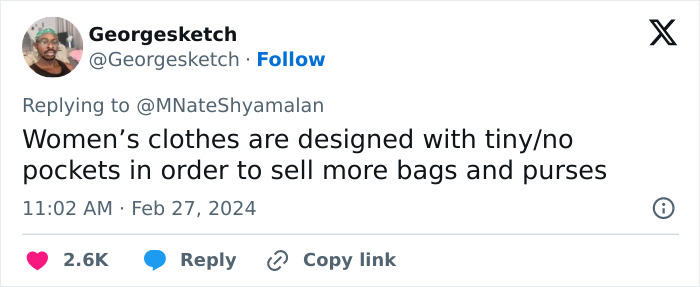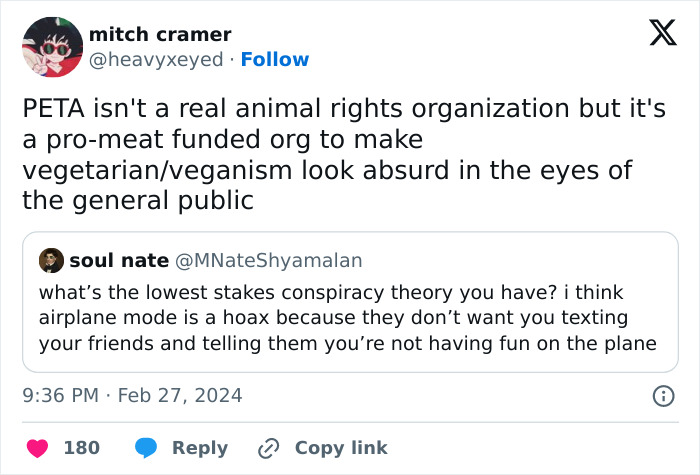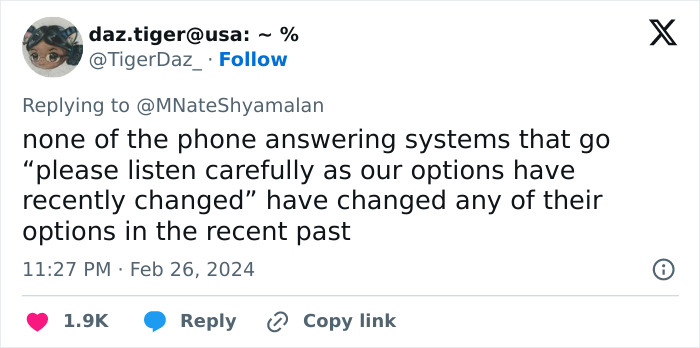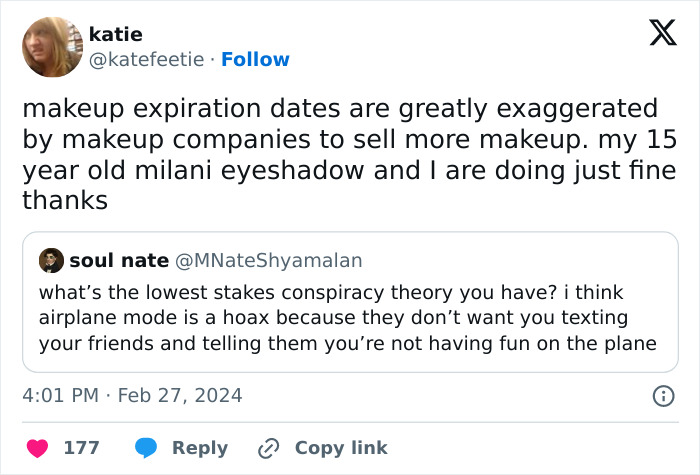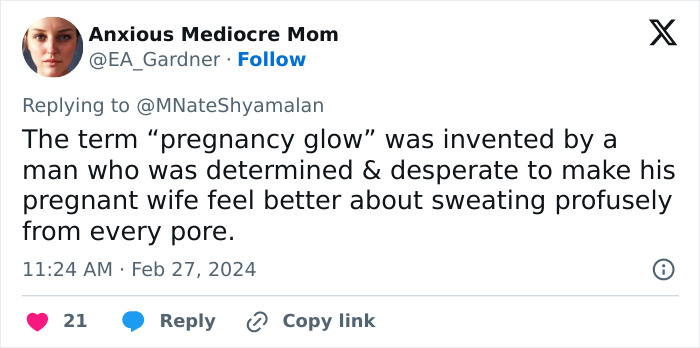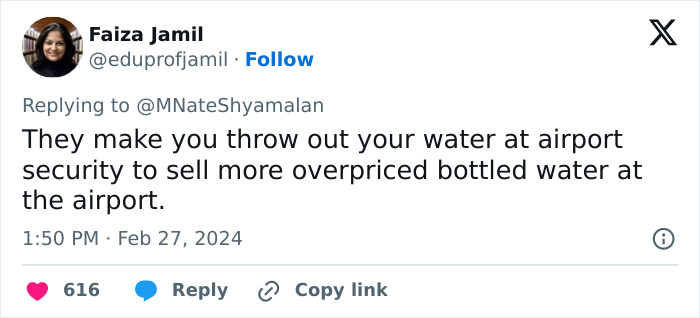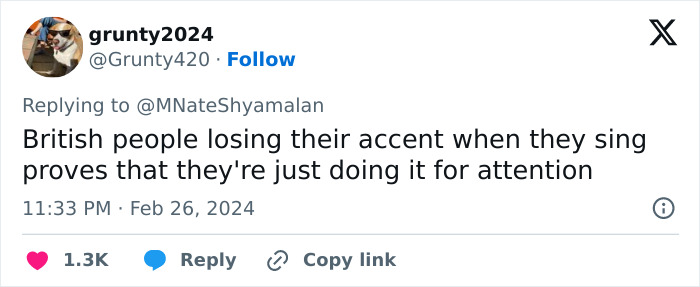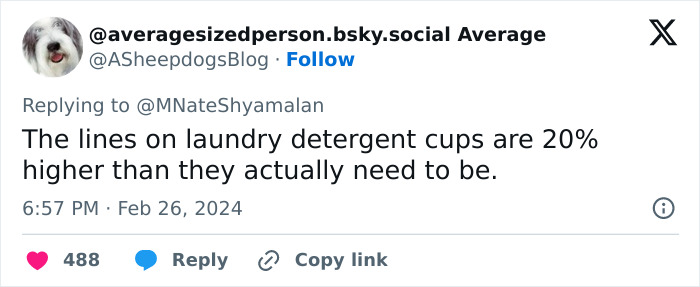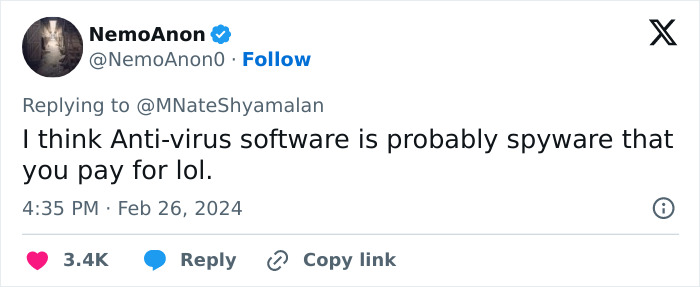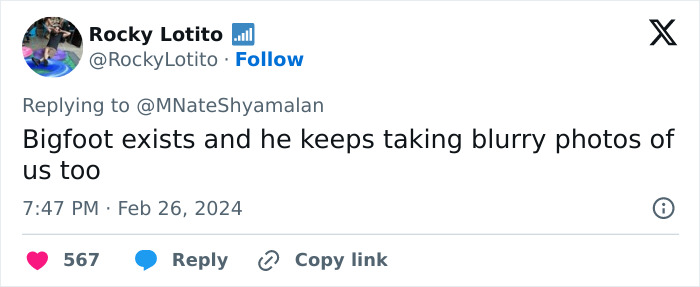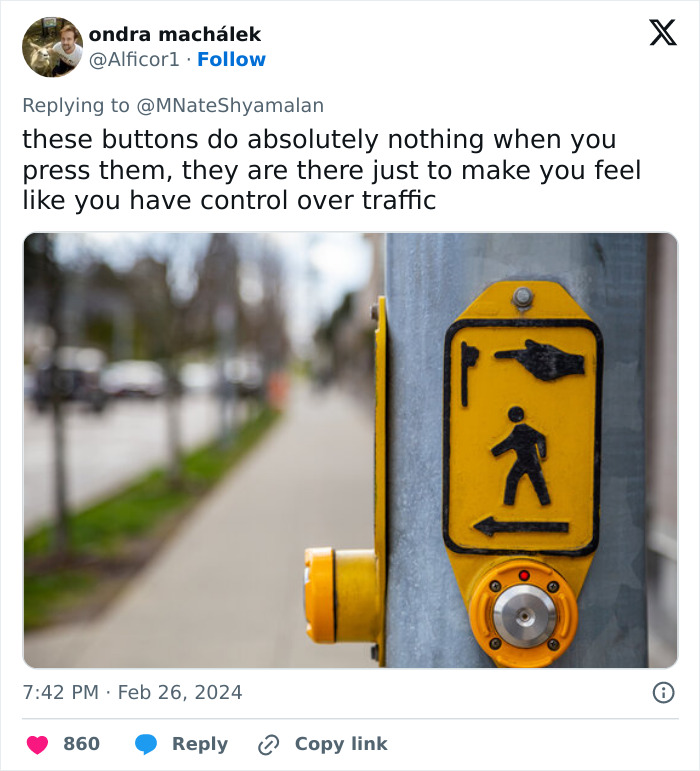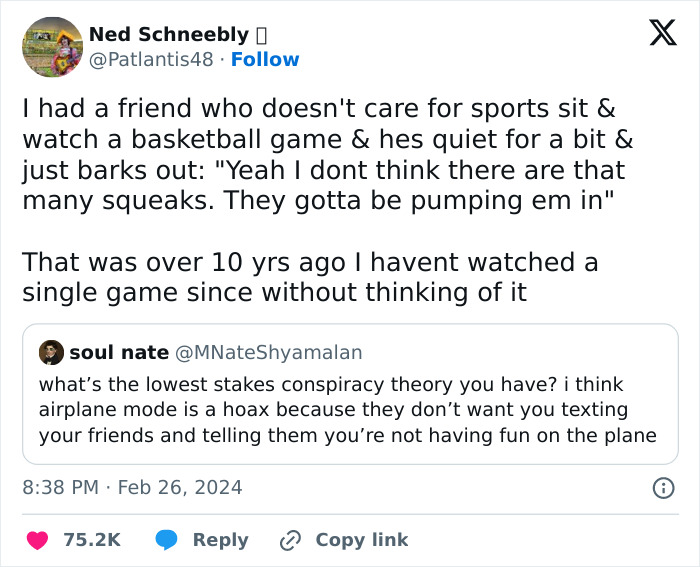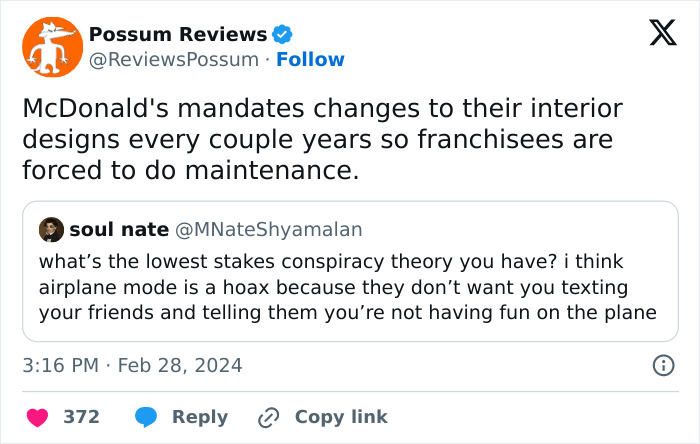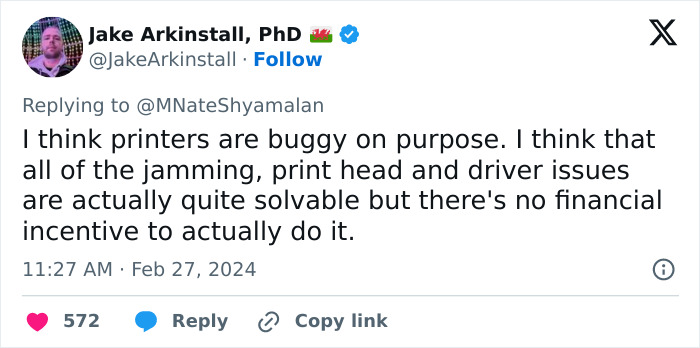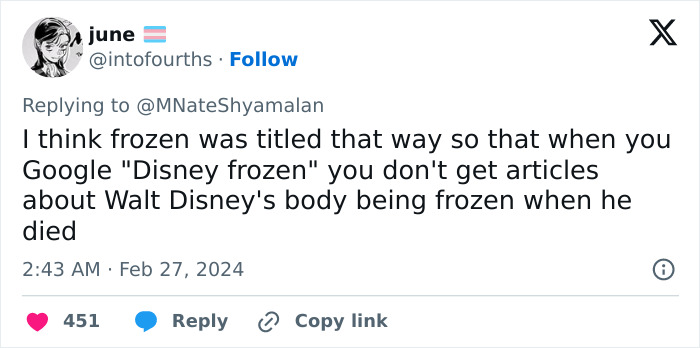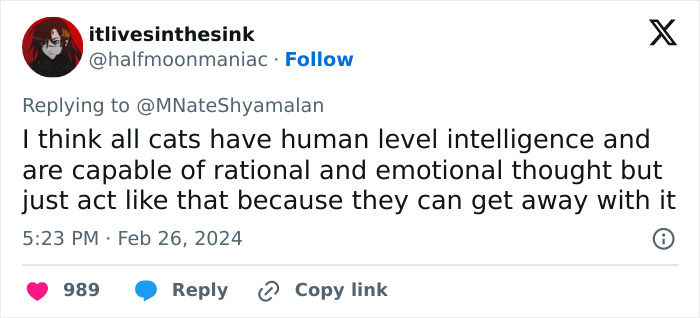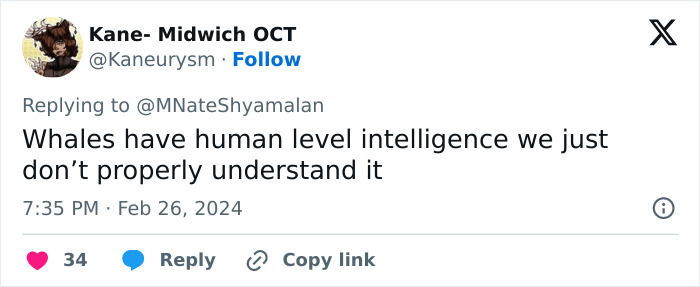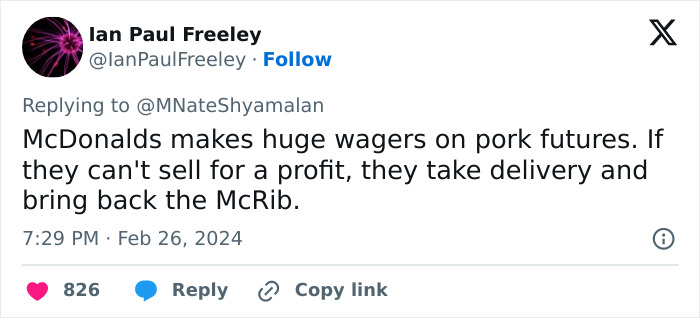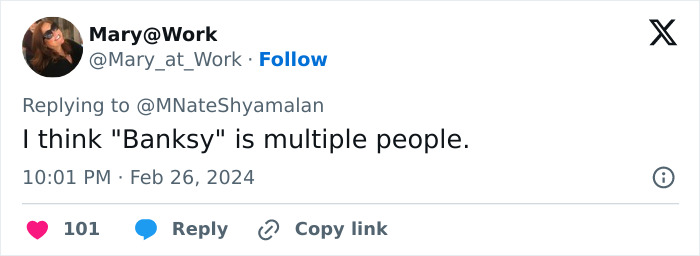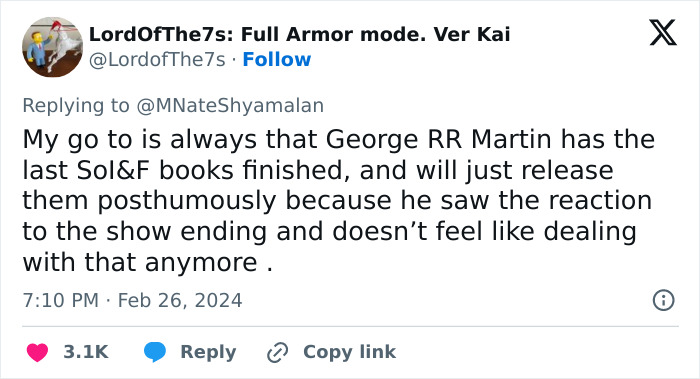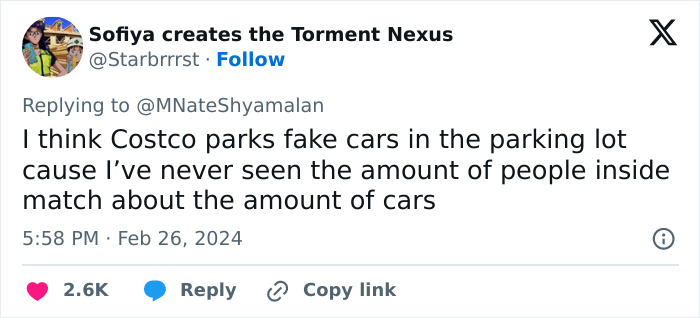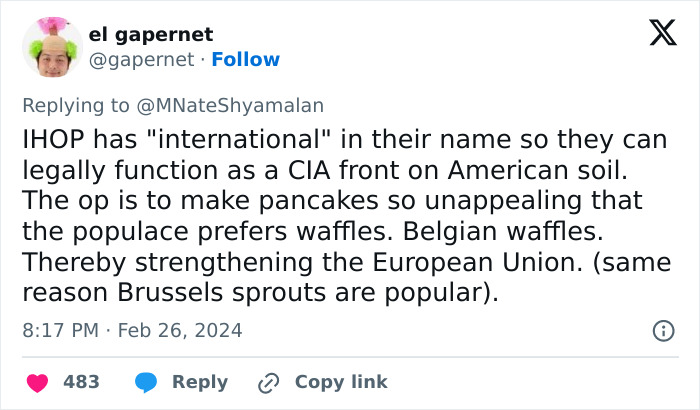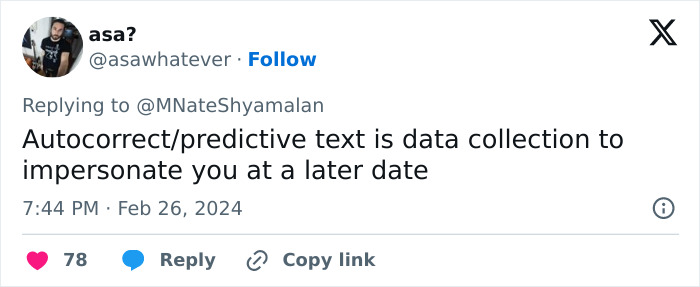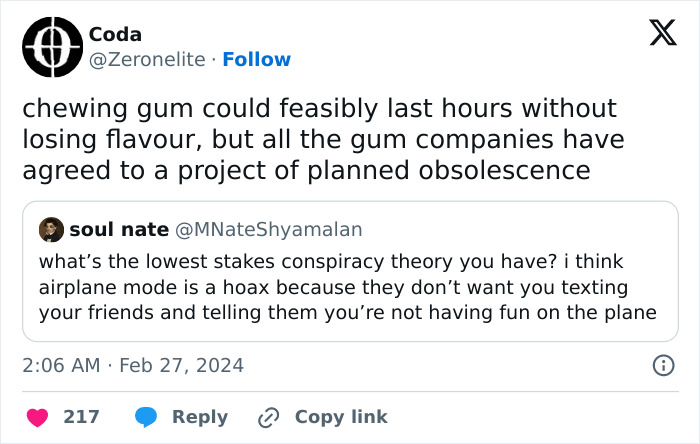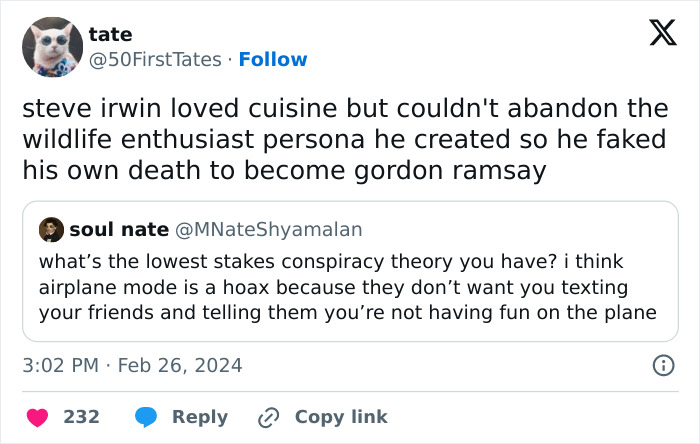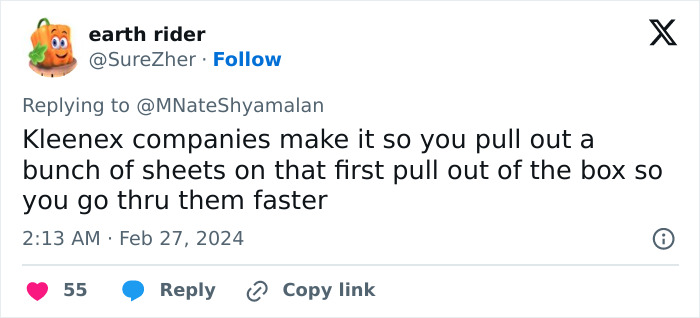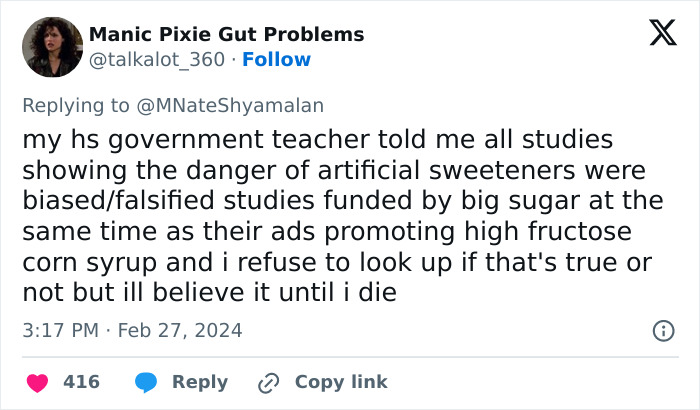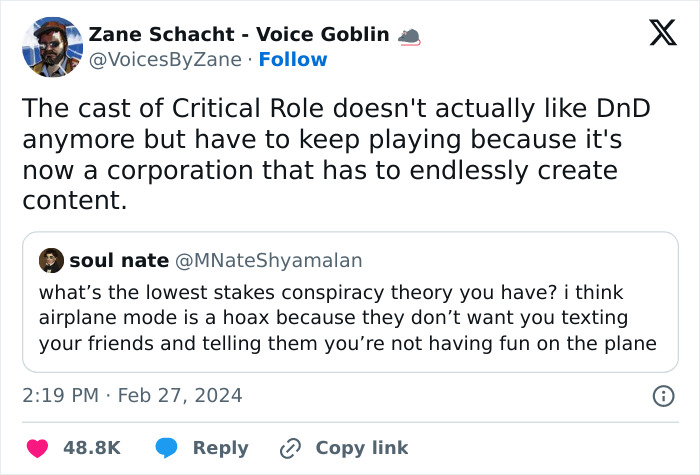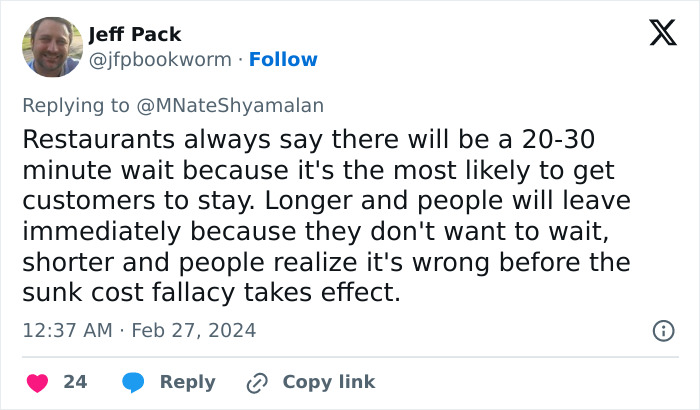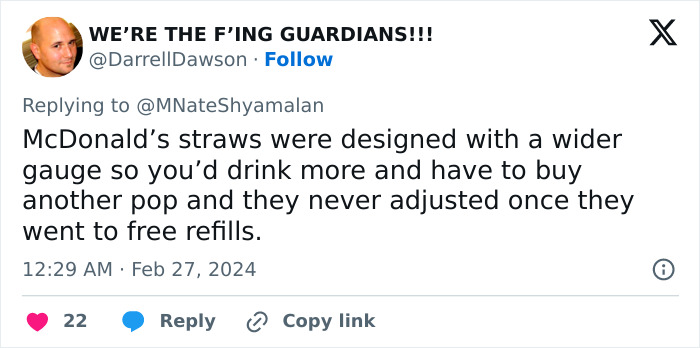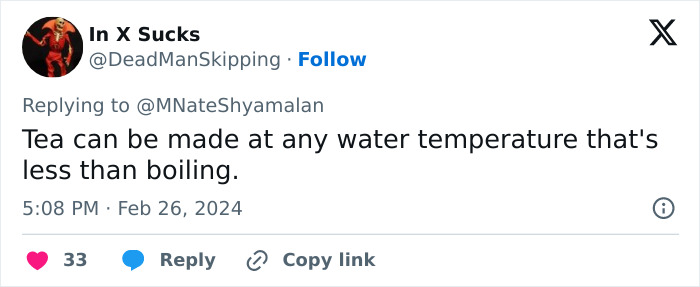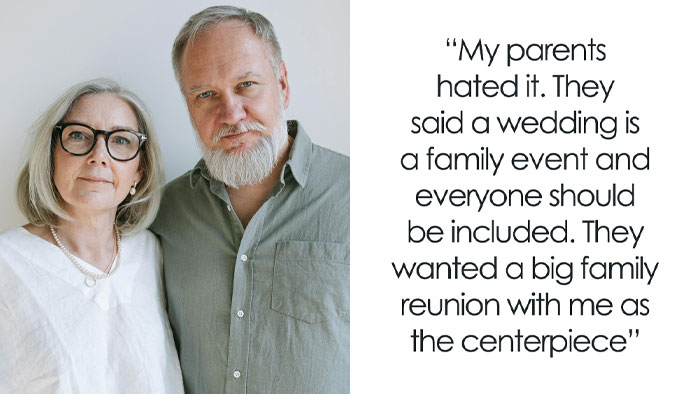Mysteries are all around us. With such a big world, we have so much to discover. That’s why conspiracy theories are so fun! Some theories operate on a larger scale, like the moon landing conspiracy; others are often smaller stories.
Someone decided to focus on these low-stakes conspiracy theories and asked people for examples in a now-viral thread on X (formerly Twitter). Get your tinfoil hat ready as you check out these theories. You’ll probably agree with more anecdotes than you think.
More info: X
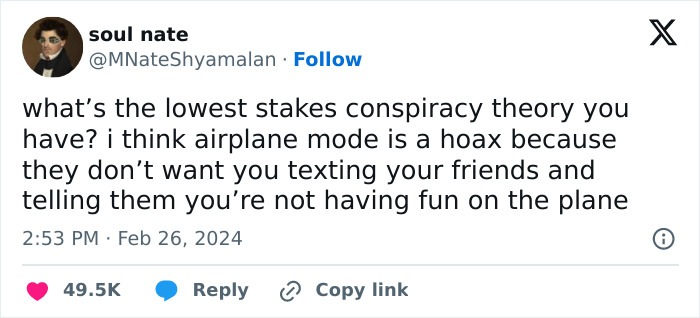
Image credits: MNateShyamalan
This post may include affiliate links.
In this Bored Panda list, you’ll find the tiniest conspiracies that people have come across in their daily lives. Whether it involves the buttons at a sidewalk crossing or British people faking their accents, there are so many crazy theories that actually might not seem so crazy once you think about it.
A conspiracy theory involves an explanation about a person, thing, or event that is usually centered around a secret plot. Conspiracy theorists genuinely believe that their theory is a secret that’s being hidden from the public, often by some powerful officials. It’s no wonder why people are eager to learn more about these plots and uncover the secrets within.
What’s interesting to note about conspiracy theories is that people latch onto them much faster during times of anxiety or uncertainty. Such as wars, natural disasters, and, as of recently, a global pandemic. A study on the rise of conspiracy theories during the pandemic found that three of the most commonly talked about rumors were based on QAnon, the anti-vaccine movement, and anti-5G discussions.
People also tend to distrust authority figures. So, when they are faced with high levels of uncertainty, conspiracy theories tend to spread even more. This suggests that people come up with these vague rumors and plots to make sense of the rapidly changing world around them and to make some threats seem more understandable.
Researchers have also found that conspiracy theories play on people’s feelings and sense of identity. That’s why these theorists hold on so firmly to their beliefs. Though there might not be enough evidence or facts to support the stories, people’s faith makes them resist any efforts to prove them wrong. And if people don’t trust authorities, how exactly will these rumors ever be disproved?
According to the University of Nottingham: “People are attracted to conspiracy theories in an attempt to satisfy three psychological needs. They want more certainty, to feel in control, and maintain a positive image of their self and group.”
A 1995 study by John McHoskey sought to provide an explanation for why it was difficult to debunk conspiracy theories. He gave believers and disbelievers of the Kennedy conspiracy a balanced description of the arguments for and against it. His theory was that those who favored and opposed the conspiracy would both regard that very same statement as evidence in favor of their position.
His theory was proved to be correct. This is because when people face uncertain information, they tend to hold more strongly onto their point of view. People also readily accept ideas that fit their viewpoint and tend to strongly question anything that doesn’t fit their point of view.
Since this list has many low-stakes theories, some are likely to have a kernel of truth. It’s interesting to note that not all conspiracies are false. Some have turned out to be true over time. For example, it was believed that tobacco companies were hiding evidence that smoking is deadly. Even though there was proof in the early 1950s to show that smoking could cause cancer, it wasn’t until the late 1990s that Philip Morris, the nation’s largest cigarette maker at the time, admitted to it.
This is what Joseph E. Uscinski had to say in his work on the study of conspiracy theories: “It is difficult to prove that a secret plot is not taking place behind the scenes. A dearth of positive proof and an abundance of falsifying evidence seem to count in their favor. This is not inappropriate: if powerful actors are trying to hide something it only stands to reason that confirming evidence will be hidden and red herrings will abound.”
See also close door buttons in many elevators - often not connected.
Highly directional microphones are placed on both posts (that hold up the nets) to pick up sound from the key (floor area in front of the net). The audio engineers that mix the show, actually refer to them as "squeak mics"! The sound is not artificial. The other interesting mic is the "swish mic", placed near the rim in order to catch the "swish" sound from the ball going through the net.
With the power of social media when it comes to sharing viewpoints, it might seem like more people are falling for conspiracies. In every corner you turn online, there’ll be someone spilling the tea on a juicy theory that you’ve probably never heard about.
That’s why there have been many studies aiming to see if the number of conspiracy theories was truly increasing every year. One study found that there hasn’t been any significant increase. In fact, researchers have found that people fall for conspiracies online only if they are already likely to believe in them or if they are interested in that particular topic.
Conspiracy theories are wild and have become popular for a reason. These low-stakes conspiracies are just juicy enough to get you thinking without pulling you into a rabbit hole of information. Interestingly enough, the post got more than 28 million views and over 800 comments, with some of the wackiest answers possible. If you believe in any minor conspiracy, this is your time to shine. Let us know in the comments and feel free to share more than one.
I went to Costco yesterday and it was PACKED, I actually would’ve expected less people based on the number of cars. I had to eat my hot dog while walking around bc the food area was so jammed.
All these years of trying to correct me and it still has no idea what I intend to say.
Not exactly, rather thestudies are biased (not false), but they were created by the competition. For example, When Aspartame came out, the companies using that product and their investors funded the studies against saccharin which was the original. Later the inventors of Sucralose did that to Aspartame later, etc
Sure, it just tastes different. Some people like their tea dark and heavy in the tannin so make sure it' as hot as possible; others like it weak and delicate, particularly green teas, and they my be better if the water is somewhat cooler. Not sure where you think the conspiracy is happening and who is behind it.
I have two conspiracies that I believe in. 1) The homeless industry. The government, homeless organizations, business suppliers/manufacturers and service businesses (think security & building developers) discovered how profitable it is to keep most people homeless. There's a lot of money or I should say profits to be made in grants, wool blankets, water bottles, travel size or mini size products such as soap, security for organizations such as homeless shelters, and executive salaries which never seems to be anything less than $100,000 a year plus bonuses while shelter staff and homeless organizations that actually TRY to help homeless people get barely above minimum wage. Then they send out all kind of scare tactics and make the homeless look so bad to housed people that it creates a fear of ever becoming homeless. They keep their bad jobs and stay in slumlord or expensive homes because of the fear of becoming "one of them" 🧟♀️ I believe they are creating hate for homeless people as a distraction so they can keep making money off keeping people homeless.
I have two conspiracies that I believe in. 1) The homeless industry. The government, homeless organizations, business suppliers/manufacturers and service businesses (think security & building developers) discovered how profitable it is to keep most people homeless. There's a lot of money or I should say profits to be made in grants, wool blankets, water bottles, travel size or mini size products such as soap, security for organizations such as homeless shelters, and executive salaries which never seems to be anything less than $100,000 a year plus bonuses while shelter staff and homeless organizations that actually TRY to help homeless people get barely above minimum wage. Then they send out all kind of scare tactics and make the homeless look so bad to housed people that it creates a fear of ever becoming homeless. They keep their bad jobs and stay in slumlord or expensive homes because of the fear of becoming "one of them" 🧟♀️ I believe they are creating hate for homeless people as a distraction so they can keep making money off keeping people homeless.

 Dark Mode
Dark Mode 

 No fees, cancel anytime
No fees, cancel anytime 







